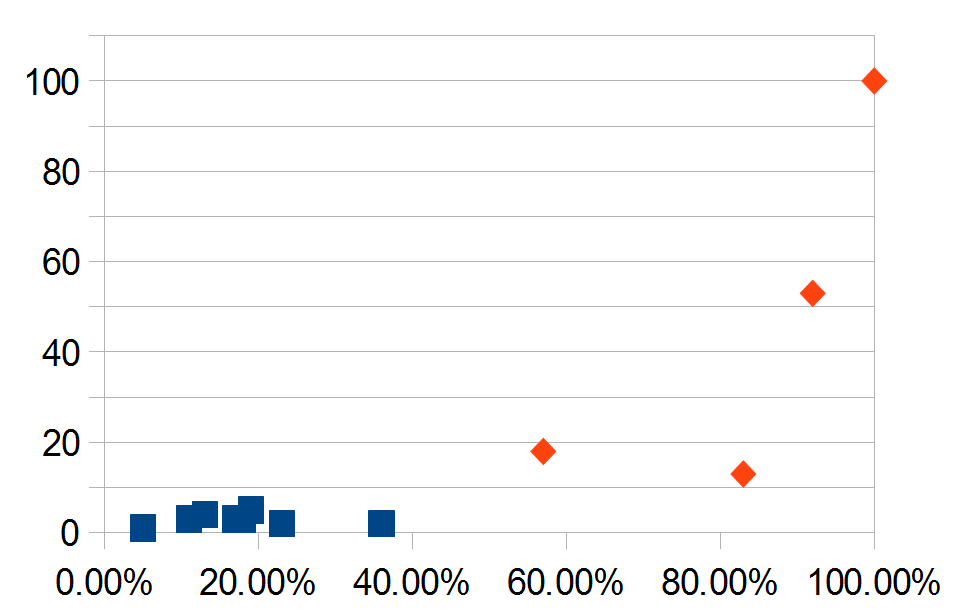http://peterkirby.com/eusebius-rufinus- ... ities.html
I explain this as arriving by way of an intermediary, some set of excerpts from Josephus, so-identified, in Latin, which was made before the 6th century translation of Josephus under Cassiodorus, by lifting them from the earlier translation of Eusebius by Rufinus. From there they re-entered Josephus in the Latin translation (although by varying degrees of fidelity to the text based on Rufinus).

Quotations of Josephus by Eusebius in Rufinus. Compared by percentage of words overlapping with LAJ (x-axis) and with the longest string of words in order shared with LAJ (y-axis). From left to right, the red dots represent the passage on Herod the Great’s death, the passage on high priests such as Caiaphas, the passage on John the Baptist, and the passage on Jesus.
This builds on an earlier post:
http://peterkirby.com/the-quotable-josephus.html
http://peterkirby.com/eusebius-rufinus- ... ities.htmlIn a recent post on The Quotable Josephus, the eminent suitability of Josephus as a source of excerpts was explored. The explanation offered here is that the translators of the Antiquities into Latin made use of an intermediary text (not the Latin translation of Eusebius directly) that quoted from Josephus in the Latin wording of Rufinus’ translation of Eusebius. This explains three things:
(1) Why the translators lean on the existing translations made by Rufinus on only four occasions, when there are also several other quotations (and some longer quotations) that are found in Rufinus’ translation of Eusebius that do not get used at all in the Latin translation of Josephus’ Antiquities.
(2) Why the usage noted cleaves cleanly between the passage that provide support and background for the characters in the Gospel of Matthew (or the Gospels generally) and those which do not. The intermediary source found these to be more relevant as excerpts.
(3) How Rufinus’ translation of Eusebius (indirectly) occurred to the translators of Josephus as a good source to use for translating Josephus. If the intermediary source were very brief (or were titled) so as to make the connection with Josephus clear, it is easy to see it being brought to bear on the translation (of Josephus) effort.
A future post will look at how the translators of Josephus have used this Latin source that ultimately derives from Rufinus’ translation of Eusebius. The rest of this post is given over to a presentation of the data.